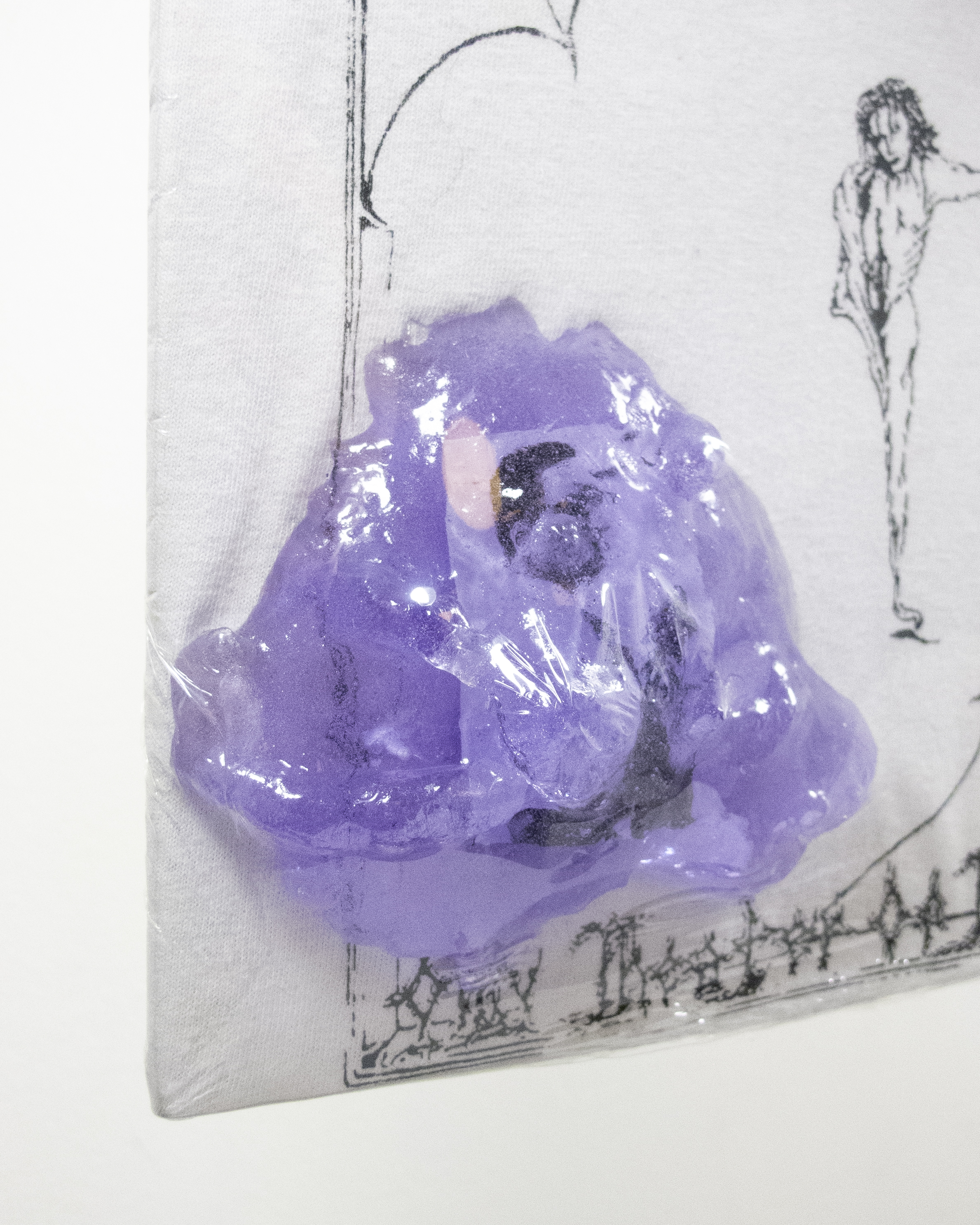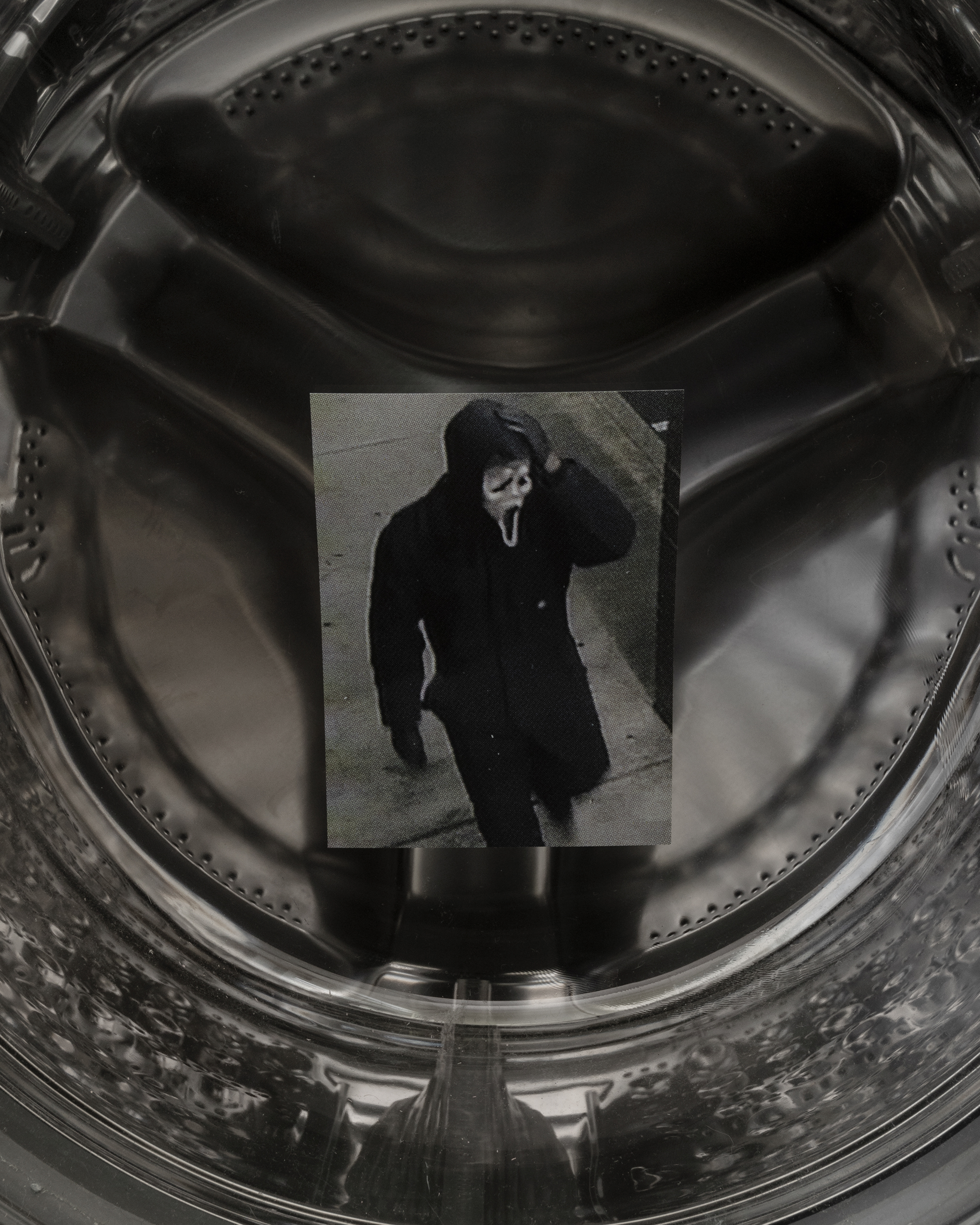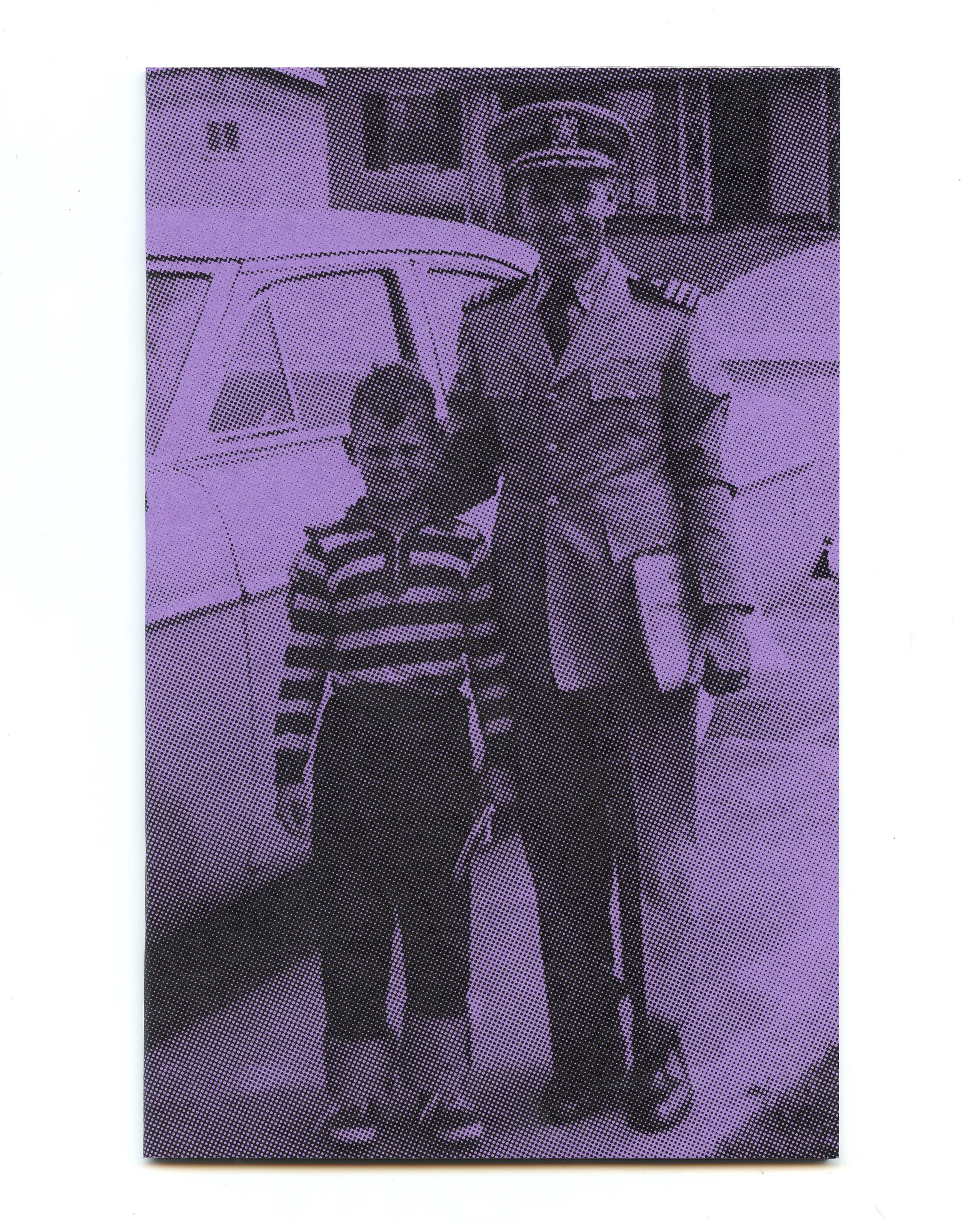It is very easy to pretend to be familiar with Lynch when you're not. I don't know why this is. But I've only seen Blue Velvet, and everything else I know about the guy is just from growing up on the internet. You see stills, captioned and not, reconstituted narratives where Lynch is the punchline. There is a general distance-away-from that his work satisfies as it orbits popular culture, embodying a particular brand of the esoteric, one that you can shit on reliably but still understand as important. I've seen one of his films, and barely remember it. Why am I affirming that it's culturally important? I don't know shit about the guy. What is it about this brand that is easily affectable? Why do I find imitating someone with a Letterbox account easier than most other modes?
‘Brody - I believe insanity's involved. There's… ah... well... nervous laugh... could be anything in this film.
Brody- Is it your point of view that there is some insanity?
Pullman - Well, I think, you know, it's amazing what the human mind is capable of doing for its own survival.
Brody - Yes.
Pullman - There's nothing like someone saying…
Brody - That's it.
Pullman -... you just murdered somebody. And they say no…
Brody - Tell me I didn't.
Pullman - … I didn't. Tell me I didn't. I don't believe I did. I don't have a memory of it. And so, in fact, I'm not hiding anything when I say I didn't do it. And I'm going to find out who did do it. And I'm going to try to put it all together, you know, that's, you know,..
Brody - It's almost…
Pullman -... a little OJ like. It's a little…
Both - laugh'
Lost Highway contains cameos from Henry Rollins and Marilyn Manson, and I didn't recognize either of them at first. Rollins plays a guard who refuses Fred (Bill Pullman) aspirin for his eventually transformative (apparent) migraine. His character name is listed as "Guard Henry”; It's odd how much I can trust the person playing someone else on a screen. Maybe the distance, the ever-present awareness spiraling into camp, the market for tropes, butt-ends of jokes - they don't care, it's not them that's the subject of this viewing. And yet I still trust them. Manson's character is listed as “Porno Star #1”, sitting next to Renee (Patricia Arquette) on a projector screen in Mr. Eddy's (Robert Loggia) House. He's watching the porno with Renee, reenacting the movements onscreen with a character who ostensibly got killed halfway through the film. The blurring of the reality of the character, (actor job/actor character) vaguely comes across as Lynch inviting friends to be extras, little easter eggs for the diligent. I've read the credits and found the 90s archive-esque press website for the film, early internet in all its glory. I'm pretty cool for that, right? Many times, in various interviews and texts around the film, Lynch and the team intuit this idea that every interpretation or experience with Lost Highway's narrative is valid - Lynch doesn't explain the movie, in one interview, because he can't remember. That's valid. ‘When it comes down to explaining things, I stop. With most films, there is problem understanding them, there's no room to dream or to find your own interpretation and I don't want my thing to get in the way of anybody else's idea’. On the one hand, I can affirm that I am one of the few people that truly understand Lynch's films, that I am a connoisseur, that's my big idea, but on the other, I have the true moral high ground because land only I understand that there is no objective interpretation, and that any form of criticism just dies immediately in a flame of logic that I've lit. This is all to say that this brand of essentialism is really flawed; if determining a baseline for what is right and relevant is out of the question, how can we create this hierarchy of knowledge, of IYKYK effusion? What the fuck is a cult film? Who decides that?
‘[On Mystery Man]: I went off with the make-up people, and I got into this whole weird, fuckin Kabuki-looking guy with ears {sticking out) and stuff. I was imagining in my own strange world those times I have seen things that weren't there, when a ghostly appearance occurred. I knew it was my imagination; I wasn't really seeing something . But I sort of knew what the Devil looked like; I knew what Fate looked like. I used to have this image of myself that would come to me sometimes. l'd go out to the desert and get involved in some strange, isolated kind of thing, and all of a sudden I would come to myself as thiswhite, ghostly creature. I said, “Oh yeah, that's my conscience talking to me.” So l started going with that’
It might be more practical then, instead of reconciling the structure into a plump and digestible narrative, to experience it on purely structural, and formal, terms. The man likes single faces, looking away, out of the scope of the image. The Mystery man confuses the tone to such an extent that he has to be important, right? Why do we think he's evil? Because he breaks linear logic by being in two places at once? Repetition begets validation; In that sense, the film goes away from the linear to the motivic, the Jungian, imbued meaning telling us something more than the very qualities it operates on. Patricia Arquette plays two characters, "Dick Laurent is dead” says the man to himself, in the past, we think. Turns out this instance is picked directly from Lynch's own experience. Time is fluid, and fundamentally material, reversing and repeating, like the chemical film we watch it through, And just like dreams, where we listen to the unsettling voice of another dimension, we have to decide what we value, and who we want to be. To many, this is an existential vertigo, a slippage of self. LA is dark because we open too many portals into other worlds there. The filmmaking industry just harnesses that energy into profit. Don't like that memory? Don't like that thing you did? Embarrassed in front of your peers? Go to the editing room and cut it out. There's a better take, maybe one where you know more about Lynch.
-Milo Christie
Sesame Seedbed by Thomas Macie
I don’t remember where I heard it explained, but it went something like … I made a hundred thousand, then I freaked it. Short and sweet, it gets to the point. However it also leaves one wondering what exactly does one do when they “freak it” ? I’m asking because that was the answer I got from Sam (okay a synopsis of what he said) when I asked him what his new body of work was exploring and how I should respond with written word. Nostalgia was discussed, as was the lore that surrounds Southern California in relation to our personal memories, especially those tainted and made unreliable by media, culture, etc. He referenced an obscure 90s movie starring Michael Douglas and encouraged me to watch it. In Falling Down (1993) Douglas plays William Foster, a divorced and unemployed former Defense Contractor. While discussing the movie with Sam he had this to say,
“this guy is wandering all over the city on the pretense of a situation he has made up in his head based on his memories and wanting to return to the past.”
While wandering the city Foster unleashes his repressed feelings about life, poverty, the economy and commercialism*. These feelings manifest in actions by Foster so bizarre the sardonic flavor makes you question the sincerity of the film. In one scene he is informed by a child on a bicycle how to use the rocket launcher he finds himself in possession of; taking aim at a construction site the child asks what movie this is for and where the cameras are?
This scene encapsulates the humor buried amongst a mound of signifiers I find present in Sam’s work. Sam knows how to freak it. Each time we’ve sat down to talk about our current ideas, obsessions, influences I’m left with this sense that Sam is capable of absorbing all that is happening across a myriad of creative disciplines while simultaneously creating work that steps beyond and cannot be linked to any one direct reference. His work delivers a slapstick entrance for the viewer, most often accomplished with a comedic title, that reverberates as you read through the material list and discover how carefully considered each decision is. It’s the polar opposite of the 1960s hyper-conceptualized work we learned about in Art History. That is where the beauty in Sam’s work resides. Similar to how scenes of outrage against high prices or unnecessary city spending are confronted by Douglas’ character in Falling Down with a baseball bat and rocket launcher respectively, Sam confronts ideas about nostalgia and the formation of our memories through such humorous means that you begin to question if this guy is serious or just a prankster. And to be honest I’ll let you decide.
In our short correspondence Sam mentioned that the film had some good underlying American themes like hating your day job. Douglas’ character actually points a loaded gun to the air at the climax of the movie exclaiming,
“God bless the working stiff.”
This is how I will close and I would regret not taking the opportunity to publish this in writing. Sam and I grew a lot in our friendship when he helped me out in getting me a job at the Einstein Bagels where he worked at the time. That job sucked. Somehow Sam always kept a cheery demeanor and I admired that in him. Sometimes the only thing you can do when stuck working a shitty job is lean heavy into the humor of the situation. I knew Sam was a genius when he told me about the new artist inspired bagel Einstein was debuting, “Sesame Seedbed”.


 Dick Laurant, 2023
Dick Laurant, 2023Ink, found object, Fabuloso
8.5”x4.25”x2”


 Bungalow, 2023
Bungalow, 2023Galvanized steel, adhesive, wood, palmwax, Fabuloso, pigment
20”x16”x4”




Whammy Burger, 1450 Noriega Street, 2023
Silkscreen on vintage t-shirt, casted resin, toner on paper, thermo-plastic, and masonite
9.25”x11”x2.5”


 The Last Latchkey Kid, 2023
The Last Latchkey Kid, 2023Toner on vinyl
Dimmensions variable

36 page, saddle stitch booklet.
8.5” x 5.5”.
Printed on a digital CMYK dry toner press.
French cardstock cover.
Edition of 50.